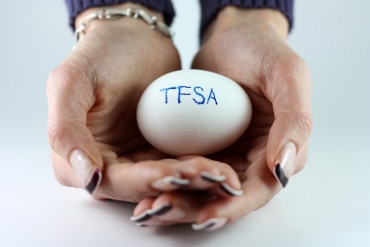Over the years, a lot of articles have been written to remind U.S. citizens residing in Canada to file a U.S. 1040 tax return along with the FinCEN Report 114 and FBAR (Report of Foreign Bank and Financial Accounts). Although the FBAR and U.S. 1040 are important documents that must be completes by U.S. expats, there are also very important U.S. tax filings that are often overlooked or not properly filed. Many of these overlooked tax filings are related to American citizens residing in Canada who own or are interested in Canadian enterprises, unlimited liability corporations, Canadian Trusts, Canadian partnerships, TFSAs and RESPs or maybe own Canadian traded funds or ETFs in a non-fixed account.
Below are seven major forms to get familiar with, which are often overlooked by U.S. tax filers residing in Canada:
Form 8858 – Information return of U.S. persons regarding foreign disregarded entities
Every American citizen who directly or indirectly owns a Foreign Disregarded Entity (FDE) is required to file this form. An FDE is an entity which is neither created nor organized in the U.S and which is overlooked for tax purposes as an entity separate from its owner. For instance, a single member Unlimited Liability Company owned by a U.S. citizen in Canada will require filing this form.
Form 8865 – Return of U.S. persons regarding certain foreign partnerships
Any U.S. citizen who owns over 50% interest on a foreign partnership in a year, or owns at least 10% interest on a U.S.-controlled partnership, is required to fill this form. A U.S. citizen may also be required to fill this form if he or she contributed assets in exchange for a partnership interest or if the asset contributed is worth over $100,000.
Form 5471 – Information return of U.S. persons regarding certain foreign corporations
The Form 5471 is to be filed by every U.S. citizen who is a stakeholder in a foreign organization or Controlled Foreign Corporation (CFC) which is majorly a foreign corporation and of which 50% is owned by the U.S. citizen. Every U.S. citizen who is a director of a foreign corporation is also required to file this form. So, for instance, if you own an establishment in Canada, then you ought to file this form so as to avoid the penalty of $50,000.
Form 926 – Filing requirement for U.S. transferors of property to a foreign corporation
A U.S citizen must file this form if he transfers an asset to a foreign corporation of which he owns about 10% of the stock, or if the amount of stock transferred is above $100,000. This form will also be filed is a U.S. citizen contributes cash in exchange for stock in the formation of a foreign owned corporation.
Form 3520-A/3520 – Annual information return of foreign trust with a U.S. owner
A U.S. owned foreign trust which may sometimes comprise of foreign pension plans and Registered Education Savings Plans (RESPs), depending on your interpretation of IRS regulations, every Tax Free Savings Account (TFSAs) are required to file this form with the IRS by the 5th of March every year. Also, if other payment or distribution is received from the trust, the tax payer is required to file this form with the tax payer’s tax return. If a U.S. owner fails to file these forms, the person faces an initial fine of about $10,000 or 5% of the gross value of the assets at the end of the tax year.
Form 8621: Information return by a shareholder of a passive foreign investment company or qualified electing fund.
Any interest in an overseas “passive” corporation (50% or more of its assets produce passive income or 75% of its income is passive) must be reported on this form. This type of investment comes with other issues such as whether to make a mark-to-market or qualified electing fund election, and subsequently how income and gains are taxed. As we discussed in a previous article, even owning shares in a Canadian mutual fund or Exchange Traded Fund (ETF) could trigger filing this form.
Form 8938: Statement of foreign financial assets
A U.S. person must file Form 8938 if he or she is a specified individual who has an interest in specified foreign financial assets and the value of those assets is more than the applicable reporting threshold. Some assets are not required to be separately listed if they have already been reported on one of the forms listed previously, such as the 8891, 3520 or 5471. Starting with 2013, U.S. entities will be required to file this form as well as individuals.
As a U.S. tax filer, it is very important that you fully disclose all of your worldwide financial interests to your U.S. tax preparer, so that they have a complete understanding of your financial affairs and can properly address all of your U.S. tax filing obligations. Failure to file the above mentioned U.S. tax forms can lead to substantial non-compliance penalties. Further, make sure you always work with a qualified preparer such as a U.S. Certified Public Accountant (CPA) or an Enrolled Agent with the IRS who has a complete understanding of Canadian and U.S. tax laws and has experience servicing U.S. citizens living in Canada. At Cardinal Point, we specialize in assisting U.S. citizens living in Canada with their complicated cross-border tax filings and financial planning challenges.

